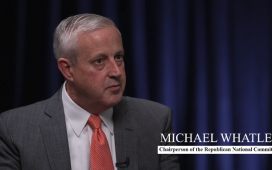With help from Brianna Gurciullo and Tanya Snyder
Editor’s Note: Morning Transportation is a free version of POLITICO Pro Transportation’s morning newsletter, which is delivered to our subscribers each morning at 6 a.m. The POLITICO Pro platform combines the news you need with tools you can use to take action on the day’s biggest stories. Act on the news with POLITICO Pro.
— There’s $3 trillion in spending and a slew of policy proposals, including in transportation, in the House’s draft for a new coronavirus package.
— DOT will ease its minimum requirements for airline service in response to carriers’ complaints that they’re being forced to fly empty or near-empty planes.
— The Treasury Department’s April numbers for the Highway Trust Fund weren’t as bad as some expected, but that just means the cliff will probably come this month or next.
IT’S WEDNESDAY: Thanks for tuning in to POLITICO’s Morning Transportation, your daily tipsheet on all things trains, planes, automobiles and ports. Get in touch with tips and feedback at [email protected] or @samjmintz.
“When out walking, brother, don’t you forget / It ain’t often that you’ll ever find a friend.”
LISTEN HERE: Follow MT’s playlist on Spotify. What better way to start your day than with songs (picked by us and readers) about roads, railways, rivers and runways.
NEW BILL, NEW TERMS FOR AIRLINES? The massive relief package proposed by House Democrats on Tuesday looks to boost airline worker protections in part by altering the conditions of the stimulus law enacted in March, which included billions for airlines to keep paying workers. As our team reports, the new draft bill would make it so airlines couldn’t lay off workers as long as they’re still utilizing the money they received from the CARES Act. Under the law as it stands now, involuntary layoffs could begin as soon as Sept. 30.
MASK MANDATE: The HEROES Act, as House leadership calls it, also includes a broad transportation mask requirement, mandating that airlines, Amtrak and big city transit agencies require their customers to wear face coverings while aboard. Most airlines, the railroad and many transit agencies already have such requirements themselves, but Democratic lawmakers and some labor unions have been pushing for a federal requirement to ensure consistency. All three would also have to give masks, gloves, hand sanitizer and disinfectant wipes to workers who interact with passengers.
MONEY FOR STATE DOTS, TRANSIT AGENCIES… The bill would allocate $15 billion for state DOTs to keep workers on and continue infrastructure projects. It would also give more than $15 billion to public transit grants, including $750 million in DOT grant funding for some rural intercity bus service providers.
...BUT IS IT ENOUGH? Those amounts are less than the potential recipients have said they’ll need. State transportation leaders argue they need $50 billion from Congress to recover from the coronavirus, and depending who you ask, transit agencies need either $24 billion or $32 billion more. A bipartisan group of 28 senators also sent a letter Tuesday to Senate leaders asking for “provisions for the U.S. motorcoach industry” but didn’t name a number.
THE BIG CAVEAT: Senate leaders haven’t even committed to going forward with another coronavirus package, let alone with the big spending and major policy proposals within the House’s $3 trillion bill. The chances for many of these provisions becoming law are extremely slim to non-existent, although there may be other vehicles like must-pass spending bills later in the year.
Republicans called the plan a “far left wish list” and said it’s dead on arrival. “Bipartisan solutions are how we ensure our transportation sector workers can continue to move goods and people safely and get us back on the road to recovery,” said House Transportation ranking member Sam Graves (R-Mo.), who criticized the bill as “costly and partisan.”
WE WON’T MAKE YOU: DOT decided to let airlines off the hook somewhat in regards to required service, as carriers have complained in recent weeks of being forced to fly empty or sparsely utilized flights. As your host reports, the agency said airlines can apply to remove covered points from their routes; either five percent or five points, whichever is greater. All communities will continue to have at least one airline serving them, DOT said.
The department also on Tuesday said it had granted, at least in part, additional exemption requests from United Airlines, Silver Airways and Tradewind Aviation.
In addition, DOT released a new Q&A explaining laws and rules around airline refunds. More than 25,000 air travel service complaints and inquiries were filed with the department in 2020, 16 times more than in a typical month, the agency said.
Speaking of refunds: A group of Senate Democrats led by Ed Markey (Mass.) is introducing legislation today that would require airlines to give full cash refunds to passengers during the pandemic, regardless of whether the airline or passenger canceled the trip. ABC News has more deets.
FLIGHT ATTENDANTS WON’T ENFORCE MASK POLICIES: American, Delta Air Lines and United are expecting their flight attendants to urge, but not compel, passengers to wear face coverings on board, Reuters scooped on Tuesday. Airline employees could deny boarding at gates and are giving masks to travelers who don’t have their own.
But in a note to pilots, American said a passenger refusing to wear a face covering in the cabin isn’t enough to cause a flight diversion, according to Reuters. POLITICO also obtained the note, which Pros can read.
It raises the question: Airlines have gotten credit for implementing what they’ve been calling “requirements” that customers wear masks while on board. But if a policy won’t be enforced in flight, can you still call it a requirement? As it stands at those airlines, there’s now nothing stopping passengers from wearing a mask during boarding and then taking it off once in the air, while in close proximity to other travelers.
THE NUMBERS ARE IN: The number of passengers on scheduled flights with U.S. carriers fell a record 51 percent in March compared with the same month last year, DOT said, citing preliminary data from airlines. That breaks a 29-month streak of year-over-year increase, our Brianna Gurciullo reports.
MT MAILBAG: Senate Commerce ranking member Maria Cantwell (D-Wash.) wants Treasury Secretary Steve Mnuchin to update the criteria for companies to be eligible for the $17 billion in CARES Act loans meant for businesses that help maintain national security. At a committee hearing last week, the head of the Aerospace Industries Association, Eric Fanning, described Treasury’s criteria as overly narrow.
WE’RE ON THE ROAD TO NOWHERE: The Highway Trust Fund numbers in April’s Treasury Statement, which came out Tuesday, were not as bad as expected. The fuel and truck taxes that feed the fund were down 14 percent since April 2019, and the year-to-date revenues have barely moved. With driving down 42 percent since January, you might expect the drop to be more severe. The Treasury numbers show the taxes paid by bulk distributors, not individual buyers, so it may be next month or the month after that we see the massive drop in mobility reflected in VMT numbers.
The view from the state level: The pandemic could cost California up to $20 billion in transportation revenue over the next 10 years, according to new research from the Mineta Transportation Institute. That includes not just fuel taxes but other fees on vehicles as well as transportation funds raised through transit fares, tolls, sales taxes and property taxes.
— “Boeing has lost more than 500 orders this year as aviation’s coronavirus crisis deepens.” The Seattle Times.
— “Uber makes takeover offer for GrubHub, but both sides remain at odds on price.” CNBC.
— “Alameda County orders Tesla’s Fremont plant to stop production.” San Francisco Chronicle.
— “Alstom confident Bombardier rail deal on track despite crisis.” Reuters.
— “House rescue package includes $25 billion for Postal Service.” Associated Press.
DOT appropriations run out in 140 days. The FAA reauthorization expires in 1,236 days. Highway and transit policy is up for renewal in 140 days.








